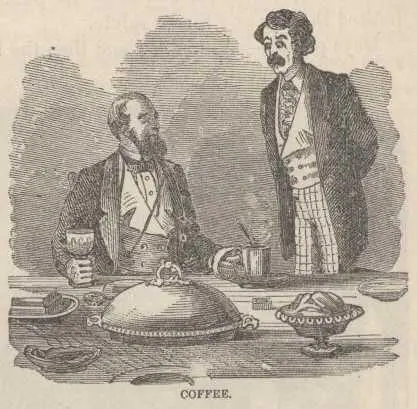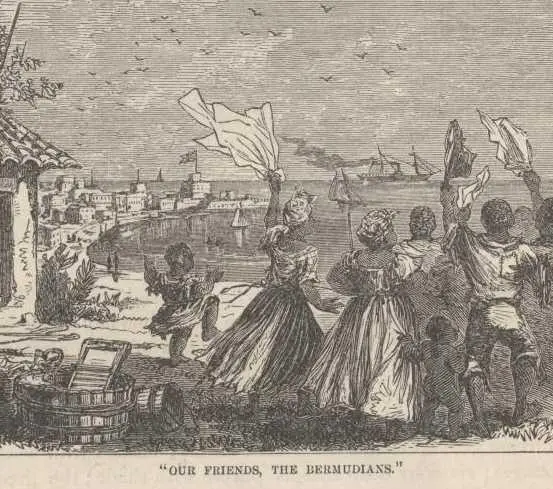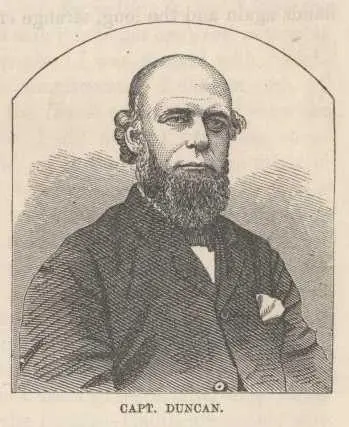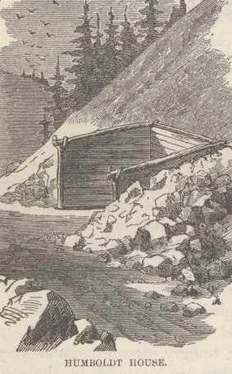Mark Twain - The Innocents Abroad
Здесь есть возможность читать онлайн «Mark Twain - The Innocents Abroad» весь текст электронной книги совершенно бесплатно (целиком полную версию без сокращений). В некоторых случаях можно слушать аудио, скачать через торрент в формате fb2 и присутствует краткое содержание. Год выпуска: 2004, Жанр: Классическая проза, Юмористическая проза, на английском языке. Описание произведения, (предисловие) а так же отзывы посетителей доступны на портале библиотеки ЛибКат.
- Название:The Innocents Abroad
- Автор:
- Жанр:
- Год:2004
- ISBN:нет данных
- Рейтинг книги:5 / 5. Голосов: 1
-
Избранное:Добавить в избранное
- Отзывы:
-
Ваша оценка:
- 100
- 1
- 2
- 3
- 4
- 5
The Innocents Abroad: краткое содержание, описание и аннотация
Предлагаем к чтению аннотацию, описание, краткое содержание или предисловие (зависит от того, что написал сам автор книги «The Innocents Abroad»). Если вы не нашли необходимую информацию о книге — напишите в комментариях, мы постараемся отыскать её.
The Innocents Abroad — читать онлайн бесплатно полную книгу (весь текст) целиком
Ниже представлен текст книги, разбитый по страницам. Система сохранения места последней прочитанной страницы, позволяет с удобством читать онлайн бесплатно книгу «The Innocents Abroad», без необходимости каждый раз заново искать на чём Вы остановились. Поставьте закладку, и сможете в любой момент перейти на страницу, на которой закончили чтение.
Интервал:
Закладка:
It would be very tiresome staying here, and so four of us ran the quarantine blockade and spent seven delightful days in Seville, Cordova, Cadiz, and wandering through the pleasant rural scenery of Andalusia, the garden of Old Spain. The experiences of that cheery week were too varied and numerous for a short chapter and I have not room for a long one. Therefore I shall leave them all out.
CHAPTER LX.
Thankless Devotion—A Newspaper Valedictory—Conclusion
Ten or eleven o'clock found us coming down to breakfast one morning in Cadiz. They told us the ship had been lying at anchor in the harbor two or three hours. It was time for us to bestir ourselves. The ship could wait only a little while because of the quarantine. We were soon on board, and within the hour the white city and the pleasant shores of Spain sank down behind the waves and passed out of sight. We had seen no land fade from view so regretfully.
It had long ago been decided in a noisy public meeting in the main cabin that we could not go to Lisbon, because we must surely be quarantined there. We did every thing by mass-meeting, in the good old national way, from swapping off one empire for another on the programme of the voyage down to complaining of the cookery and the scarcity of napkins. I am reminded, now, of one of these complaints of the cookery made by a passenger. The coffee had been steadily growing more and more execrable for the space of three weeks, till at last it had ceased to be coffee altogether and had assumed the nature of mere discolored water—so this person said. He said it was so weak that it was transparent an inch in depth around the edge of the cup. As he approached the table one morning he saw the transparent edge—by means of his extraordinary vision long before he got to his seat. He went back and complained in a high-handed way to Capt. Duncan. He said the coffee was disgraceful. The Captain showed his. It seemed tolerably good. The incipient mutineer was more outraged than ever, then, at what he denounced as the partiality shown the captain's table over the other tables in the ship. He flourished back and got his cup and set it down triumphantly, and said:
"Just try that mixture once, Captain Duncan."
He smelt it—tasted it—smiled benignantly—then said:
"It is inferior—for coffee—but it is pretty fair tea."

The humbled mutineer smelt it, tasted it, and returned to his seat. He had made an egregious ass of himself before the whole ship. He did it no more. After that he took things as they came. That was me.
The old-fashioned ship-life had returned, now that we were no longer in sight of land. For days and days it continued just the same, one day being exactly like another, and, to me, every one of them pleasant. At last we anchored in the open roadstead of Funchal, in the beautiful islands we call the Madeiras.
The mountains looked surpassingly lovely, clad as they were in living, green; ribbed with lava ridges; flecked with white cottages; riven by deep chasms purple with shade; the great slopes dashed with sunshine and mottled with shadows flung from the drifting squadrons of the sky, and the superb picture fitly crowned by towering peaks whose fronts were swept by the trailing fringes of the clouds.
But we could not land. We staid all day and looked, we abused the man who invented quarantine, we held half a dozen mass-meetings and crammed them full of interrupted speeches, motions that fell still-born, amendments that came to nought and resolutions that died from sheer exhaustion in trying to get before the house. At night we set sail.
We averaged four mass-meetings a week for the voyage—we seemed always in labor in this way, and yet so often fallaciously that whenever at long intervals we were safely delivered of a resolution, it was cause for public rejoicing, and we hoisted the flag and fired a salute.
Days passed—and nights; and then the beautiful Bermudas rose out of the sea, we entered the tortuous channel, steamed hither and thither among the bright summer islands, and rested at last under the flag of England and were welcome. We were not a nightmare here, where were civilization and intelligence in place of Spanish and Italian superstition, dirt and dread of cholera. A few days among the breezy groves, the flower gardens, the coral caves, and the lovely vistas of blue water that went curving in and out, disappearing and anon again appearing through jungle walls of brilliant foliage, restored the energies dulled by long drowsing on the ocean, and fitted us for our final cruise—our little run of a thousand miles to New York—America—HOME.
We bade good-bye to "our friends the Bermudians," as our programme hath it—the majority of those we were most intimate with were negroes—and courted the great deep again. I said the majority. We knew more negroes than white people, because we had a deal of washing to be done, but we made some most excellent friends among the whites, whom it will be a pleasant duty to hold long in grateful remembrance.

We sailed, and from that hour all idling ceased. Such another system of overhauling, general littering of cabins and packing of trunks we had not seen since we let go the anchor in the harbor of Beirout. Every body was busy. Lists of all purchases had to be made out, and values attached, to facilitate matters at the custom-house. Purchases bought by bulk in partnership had to be equitably divided, outstanding debts canceled, accounts compared, and trunks, boxes and packages labeled. All day long the bustle and confusion continued.
And now came our first accident. A passenger was running through a gangway, between decks, one stormy night, when he caught his foot in the iron staple of a door that had been heedlessly left off a hatchway, and the bones of his leg broke at the ancle. It was our first serious misfortune. We had traveled much more than twenty thousand miles, by land and sea, in many trying climates, without a single hurt, without a serious case of sickness and without a death among five and sixty passengers. Our good fortune had been wonderful. A sailor had jumped overboard at Constantinople one night, and was seen no more, but it was suspected that his object was to desert, and there was a slim chance, at least, that he reached the shore. But the passenger list was complete. There was no name missing from the register.
At last, one pleasant morning, we steamed up the harbor of New York, all on deck, all dressed in Christian garb—by special order, for there was a latent disposition in some quarters to come out as Turks—and amid a waving of handkerchiefs from welcoming friends, the glad pilgrims noted the shiver of the decks that told that ship and pier had joined hands again and the long, strange cruise was over. Amen.

CHAPTER LXI.
In this place I will print an article which I wrote for the New York Herald the night we arrived. I do it partly because my contract with my publishers makes it compulsory; partly because it is a proper, tolerably accurate, and exhaustive summing up of the cruise of the ship and the performances of the pilgrims in foreign lands; and partly because some of the passengers have abused me for writing it, and I wish the public to see how thankless a task it is to put one's self to trouble to glorify unappreciative people. I was charged with "rushing into print" with these compliments. I did not rush. I had written news letters to the Herald sometimes, but yet when I visited the office that day I did not say any thing about writing a valedictory. I did go to the Tribune office to see if such an article was wanted, because I belonged on the regular staff of that paper and it was simply a duty to do it. The managing editor was absent, and so I thought no more about it. At night when the Herald's request came for an article, I did not "rush." In fact, I demurred for a while, because I did not feel like writing compliments then, and therefore was afraid to speak of the cruise lest I might be betrayed into using other than complimentary language. However, I reflected that it would be a just and righteous thing to go down and write a kind word for the Hadjis—Hadjis are people who have made the pilgrimage—because parties not interested could not do it so feelingly as I, a fellow-Hadji, and so I penned the valedictory. I have read it, and read it again; and if there is a sentence in it that is not fulsomely complimentary to captain, ship and passengers, I can not find it. If it is not a chapter that any company might be proud to have a body write about them, my judgment is fit for nothing. With these remarks I confidently submit it to the unprejudiced judgment of the reader:
Читать дальшеИнтервал:
Закладка:
Похожие книги на «The Innocents Abroad»
Представляем Вашему вниманию похожие книги на «The Innocents Abroad» списком для выбора. Мы отобрали схожую по названию и смыслу литературу в надежде предоставить читателям больше вариантов отыскать новые, интересные, ещё непрочитанные произведения.
Обсуждение, отзывы о книге «The Innocents Abroad» и просто собственные мнения читателей. Оставьте ваши комментарии, напишите, что Вы думаете о произведении, его смысле или главных героях. Укажите что конкретно понравилось, а что нет, и почему Вы так считаете.












